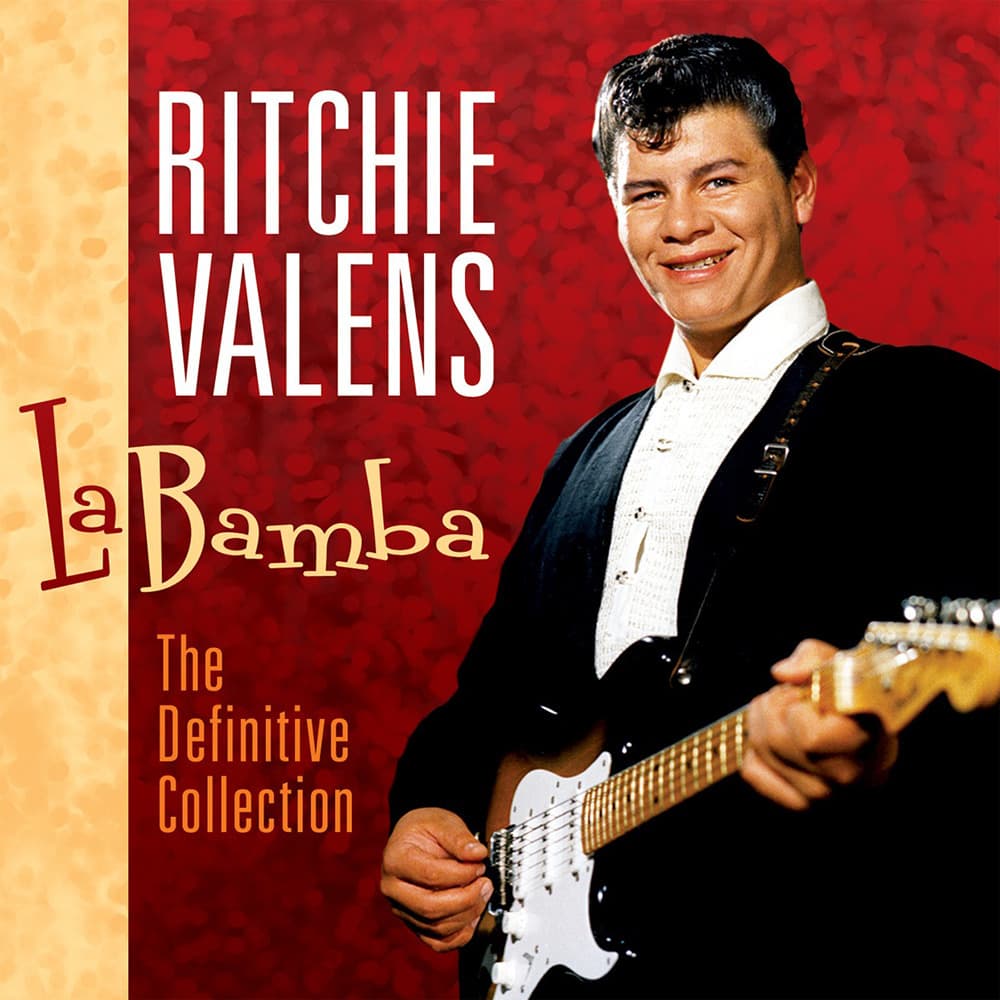
Ritchie Valens – “La Bamba”: A Rock ‘n’ Roll Revolution with a Latin Twist
Released in 1958, “La Bamba” by Ritchie Valens is a trailblazing track that fused Latin rhythm with rock ‘n’ roll, making it one of the earliest and most successful Spanish-language songs to capture mainstream American audiences. Based on a traditional Mexican folk tune from the Veracruz region, “La Bamba” was transformed by Valens into a high-energy rock hit that showcased both his cultural heritage and his talent as an artist. Despite being only 17 when he recorded it, Valens’ version of “La Bamba” climbed to #22 on the Billboard Hot 100, marking a pivotal moment in the history of rock music and helping to break cultural barriers in popular music.
Ritchie Valens was born Richard Steven Valenzuela to a Mexican-American family in California, and from a young age, he was exposed to both traditional Mexican music and American rock ‘n’ roll. His unique musical upbringing is captured perfectly in “La Bamba”, where he combined the upbeat rhythm of a Mexican folk song with the spirit of rock ‘n’ roll. Valens took the song’s traditional three-chord structure and sped it up, bringing in electric guitar riffs that gave the track a contemporary rock sound. This innovative approach captured listeners’ attention, bridging a gap between cultures and creating something entirely fresh for the time.
The lyrics to “La Bamba” are simple but powerful, sung entirely in Spanish. In the song, Valens sings, “Para bailar la Bamba, se necesita una poca de gracia” (To dance La Bamba, you need a little grace), a playful and celebratory line that invites listeners into the joy and spirit of the dance. Valens’ delivery is vibrant and joyful, and even those unfamiliar with Spanish are captivated by the energy and rhythm of his performance. His voice radiates a youthful exuberance and confidence that’s infectious, making the song universally appealing.
Musically, “La Bamba” stands out for its driving rhythm and catchy guitar riffs, with Valens’ guitar taking on a starring role. The electric guitar intro sets an exciting tone, drawing listeners in with its fast, rhythmic picking and rockabilly flair. As the song progresses, the beat remains steady, encouraging listeners to dance, while the guitar work adds a sense of motion and excitement. The simplicity of the arrangement highlights Valens’ vocals and guitar without overcrowding the track, letting the fusion of Latin and rock elements shine.
“La Bamba” was groundbreaking because it challenged and expanded the boundaries of rock music at a time when Spanish-language songs were not part of the mainstream American music landscape. Valens, as one of the first Mexican-American rock stars, helped to open doors for future Latino artists in the industry. His willingness to embrace his heritage and incorporate it into his music paved the way for later artists to bring multicultural influences into rock, pop, and other genres. Tragically, just months after the song’s release, Valens died in a plane crash at age 17, alongside Buddy Holly and The Big Bopper. Known as “The Day the Music Died,” this event marked a tremendous loss to the music world, cutting short a promising career that had already made a lasting impact.
In the years since its release, “La Bamba” has retained its popularity, with countless artists covering and paying homage to Valens’ classic. It remains an anthem of cultural pride, often played at celebrations, and continues to introduce new generations to the rich blend of Latin and rock sounds. The song’s longevity was further cemented by the success of the 1987 film La Bamba, a biographical movie about Valens’ life that brought his music back into the spotlight. Los Lobos’ cover of the song for the film soundtrack reached #1 on the Billboard Hot 100, proving that Valens’ influence remained strong decades after his passing.
In conclusion, “La Bamba” by Ritchie Valens is more than just a song; it’s a groundbreaking piece of music history. Through its infectious energy and unique blending of cultural sounds, it introduced audiences to a new world of musical possibilities. “La Bamba” remains an enduring testament to Valens’ talent, passion, and cultural pride, and it continues to be celebrated as one of the great rock ‘n’ roll classics.